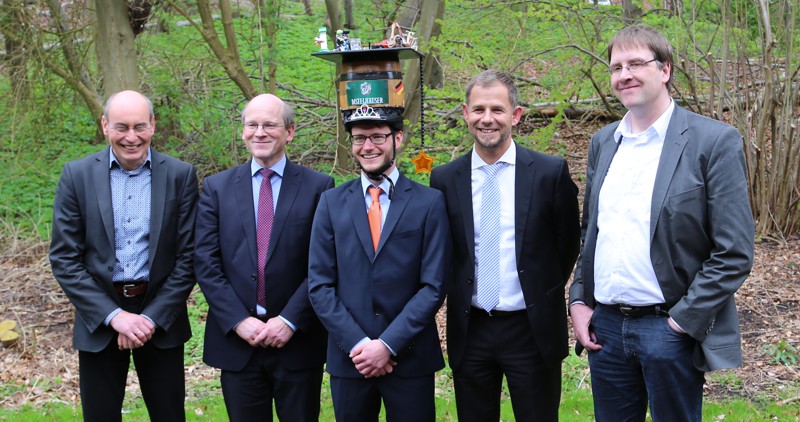No. 7 - Jochen Withopf
Jochen Withopf: Signalverarbeitungsverfahren zur Verbesserung der Sprachkommunikation im Fahrzeug
Shaker-Verlag, 2017
Commission
- Prof. Dr.-Ing. Gerhard Schmidt
(first reviewer) - Prof. Dr.-Ing. Rainer Martin
(second reviewer) - Prof. Dr. rer. nat. Steffen Börm
(examiner) - Prof. Dr.-Ing. habil.Franz Faupel
(head of the examination board)
Abstract
Speech communication inside a moving vehicle is often difficult because of the presence of high background noise levels and because the conversational partners do not face each other. In-car communication (ICC) systems help the passengers in such situations by recording the speech with microphones placed close to the talker’s mouth and reproducing it amplified with loudspeakers located close to the listener’s ears. However, by this approach, an improvement in speech intelligibility and speech quality can only be achieved if system stability, despite of the operation in a closed electro-acoustic loop, can be remained at the required system gain. Furthermore, the overall system delay has to be low enough to prevent from the perception of two individual sound sources.
Starting from the boundary conditions of speech communication inside a vehicle, this work develops a generic algorithmic framework which interconnects the signal processing methods for enhancing the microphone signals and distributing them to the available loudspeaker channels. The strict requirement for low signal delay is fulfilled by a special filter bank design which also allows for a reduction in computational complexity. In a basic version, the system stability margin is increased by equalization and signal-dependent feedback suppression. A reduction of non-stationary background noise is obtained by a multi-channel pre-processing scheme for the microphone signals. Based on this, a method for feedback cancelation is derived. Due to the high correlation between the talker signal as the desired signal and the loudspeaker signals as the excitation of the adaptive filters, a suitable method for signal decorrelation is investigated and implemented. A final comparison between different methods for feedback control clearly shows the superior performance of the cancelation approach, but also illustrates the increased requirements in system resources.
All algorithms described in this work are implemented within the real-time signal processing framework KiRAT and tested in an audio laboratory as well as under real driving conditions. Even complex algorithms, such as feedback cancelation, are always considered in the context of the entire ICC-system in order to ensure the development of practical solutions.

 On behalf of the members of the Chair of Digital Signal Processing and System Theory, we would like to take this opportunity to wish you all a very Merry Christmas and a peaceful, restful winter break. We hope that this festive season brings you joy, relaxation, and cherished moments with your loved ones.
On behalf of the members of the Chair of Digital Signal Processing and System Theory, we would like to take this opportunity to wish you all a very Merry Christmas and a peaceful, restful winter break. We hope that this festive season brings you joy, relaxation, and cherished moments with your loved ones.